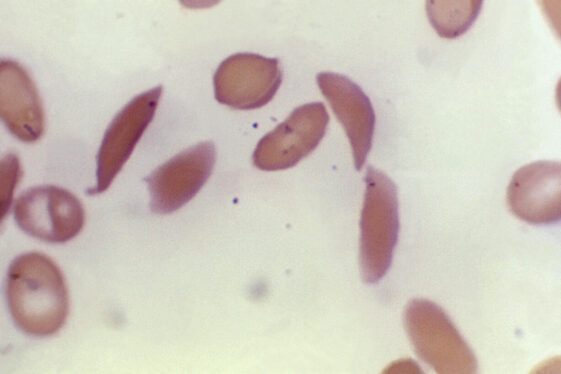In a landmark decision, the UK’s Medicines and Healthcare products Agency (MHRA) approved the use of a gene-editing therapy called Casgevy for patients with sickle cell disease and beta thalassemia — both of which are hereditary disorders related to genetic mutations of the red blood cells. The treatment, manufactured by Vertex, is the first-ever approved therapy that utilizes CRISPR-based gene editing technology to treat eligible patients.
The UK approval of the novel therapy is informed by two previous global clinical trials that indicated the treatment's efficacy. 97 percent of patients using Casgevy were relieved of severe pain associated with the blood disorders for at least 12 months after treatment during the trials. The results suggest that the gene editing treatment could replace the current standard for care. Stem cell therapy and bone marrow transplants are currently the only pathways to cure sickle cell disease and beta thalassemia, however, they involve a lot of risks.
Both sickle cell disease and beta thalassemia are blood disorders characterized by defective red blood cells that can’t carry oxygen, and require patients to get monthly blood transfusions that can be costly and time-consuming. Casgevy works by specifically targeting the genes in the bone marrow stem cells that produce faulty blood cells. For the treatment to work, a patient’s stem cells need to be extracted from their bone marrow, edited in a lab and then re-infused into the patient.
#Breaking: The UK Medicines and Healthcare products Regulatory Agency (MHRA) approves our CRISPR/Cas9 gene-edited treatment for #SickleCellDisease and #BetaThalassemia in Great Britain—a historic scientific milestone. Learn more: https://t.co/hFk7wzThTQ pic.twitter.com/bMcVN5Ln5c
— Vertex Pharmaceuticals (@VertexPharma) November 16, 2023
Despite its promising outlook, CRISPR-based therapies may not be easily available to the general public. Gene editing is an expensive endeavor. The Innovative Genomics Institute (IGI) estimates that the average CRISPR-based therapy will cost between $500,000 and $2 million per patient. The IGI has built out an ‘Affordability Task Force’ to tackle the issue of expanding access to these novel therapies.
Aside from costliness, gene editing therapies offer huge promise to innovate treatment pathways for rare conditions including neurodegenerative diseases, cancer and muscular atrophy. More importantly, this landmark approval for Casgevy “opens the door for further applications of CRISPR therapies in the future,” Prof Dame Kay Davies, a scientist from the University of Oxford, said. And new iterations of gene editing technologies may even surpass CRISPR in the future.
Casgevy is still being reviewed by regulatory agencies for safety standards in other countries, including the United States and Saudi Arabia. A marketing application, the first step towards approval for the therapy, was recently validated by the European Medicines Agency.
This article originally appeared on Engadget at https://www.engadget.com/uk-authorizes-first-gene-therapy-for-treating-sickle-cell-disease-184130989.html?src=rss


